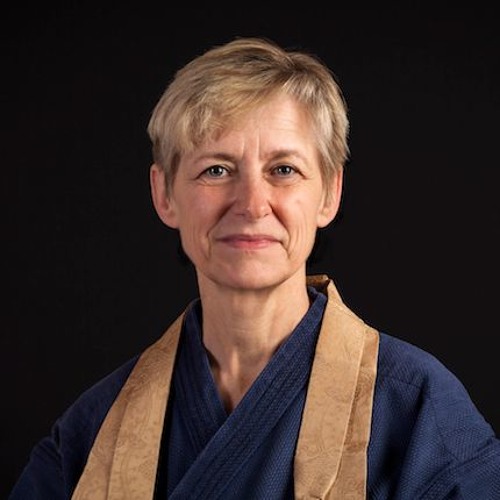The Guts of Leadership: Developing Unshakable Fearlessness
Leaders needs guts – right? Added to which a hefty dose of intuition, groundedness and a commitment to the whole would be nice. But these attributes seem to be in short supply nowadays – so how do we foster their development?
As it happens, there’s a nifty little shortcut, which zen master and former NASA scientist Ginny Whitelaw is putting into practice. In this conversation, we unpack exactly how and why working with the Hara leads to such swift and profound change, and the impact this can have on us as coaches.
Hara: the centre of the human being
In these increasingly complex and turbulent times, leaders (and citizens) need dynamic resilience and agility in order to adapt and innovate. Like a ball on fast moving waters, they need to be able to shift with the currents and remain afloat.
Taking that metaphor one step further, what they need is a sense of grounded connectedness, dynamism and an ability to move with shifting conditions. The connectedness serves to help them feel that they are part of what is happening, rather than apart from it – only when there is a sense of connection to what is occurring can a leader be truly invested in finding a solution that benefits the whole.
It turns out that there is a way to foster physical connectedness in individuals. It involves working with the Hara, something that zen practitioners like Ginny know all about. The term Hara refers to an energetic quality localised in the gut region that goes beyond the nerve cells that we associate with the gut brain; it is the referred to as the “psychophysicalspiritual” centre of the human being.
To localize the Hara, place your palms on your lower abdomen, thumbs on the naval area, fingertips at the start of legs – this whole are is the Hara.
Developing the Hara
When the body is relaxed, the breath drops into the lower abdomen. This brings us into a more stable, grounded, connected state – a state that makes us feel like we’re home. We can also send our breath down consciously by feeling our feet on the ground and exhaling down through the abdomen into the earth. This triggers the relaxation reflex of the nervous system and has the effect of stabilizing the whole system.
Zen meditation is a formal invitation to practice this with every breath. With time you can build an unconscious competence that develops the Hara without it being a conscious effort. Practicing this equips you with a very handy tool – leaders have more presence and more gravitas in their voice, and coaches can do this before a session.
Developing the Hara leads to more frequent experiences of Samadhi – an everyday human experience that occurs when we forget the boundary of the separate self and become one with a situation. This is a fairly common experience in one sense but often goes ignored as we don’t have a concept of it in our culture.
The benefit of Samadhi states is that as you open to this sense of visceral connectivity to all things it’s like an antenna opens up that’s beyond the rational; intuition becomes strengthened, a different channel of information becomes accessible. In a way, it’s as though the human body becomes an antenna for the universe.
The relevance of the Hara in decision-making
It is well documented that emotionality weighs much more heavily than rationality in decision-making, and a good connection to a well-developed Hara has the effect of stabilizing emotion. This allows us to face difficult emotions and situations with more equanimity, as well as receive intuitive guidance more easily.
When you can be present for difficult emotions because you have the necessary internal stability, you lose the fear of those types of situations – you don’t back away from a difficult conversation or a difficult question; it opens up our own resourcefulness to be present in challenging situations. Effectively, it transforms our relationship to the challenges of life.
An important factor in this work is the need to integrate the body into our cultural concept of mindfulness – many people treat it as just a head exercise, as becoming more aware of their thinking. We need to integrate the body into this awareness as this is the only thing that can stabilize us when emotions and thinking are difficult.
